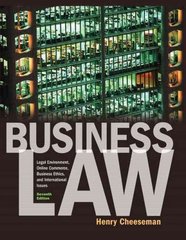Question
1. The condition of the labor market is a central focus of policy makers and households. Let's consider the overall condition of the American market.
1.
The condition of the labor market is a central focus of policy makers and
households. Let's consider the overall condition of the American market.
Go the website of the Bureau of Labor Statistics, and look at the current
summary of the employment situation of the United States
(
http://www.bls.gov/news.release/pdf/empsit.pdf
).
a)
Tables A and B summarizes the major labor data for the economy.
Look over the data and highlight in a paragraph or two what you
think is important over the past three months about labor conditions
from both the household and the establishment surveys.
b)
Now I ask you to compare employment in the two different surveys
of the labor market. Go to table A-1 (household) and table B-1
(Establishments) and let me know the following:
i.
How many people are employed in Table A-1 versus B-1?
Why the difference?
ii.
Compare the seasonally adjusted levels of employment,
year-over-year for April 2019-2020, in the two surveys and
report on the change in the number employed in the two.
iii.
Now compare the number of total jobs in NFPE to jobs in the
private sector, both year-over-year for April 2019-20.
iv.
Lastly, compare the growth in employment in A-1 to Total
NFPE to Private NFPE, both in B-1. Is there much a
difference in the growth rates of these three?
c)
Look at tables A-2 and A-3. Is there any difference between the
rates of unemployment between teenagers and adults? Between
blacks, Asians, Latinos, and whites? Which category on this page
has the highest rate of unemployment? Provide some basic
numbers to make you case.
d)
Before you access the table cited here answer this question: state
in a few sentences what would you guess is the relationship or
correlation between the level of a person's education and the rate
of unemployment of people with that level of education? Why do
you think this relationship, if any, exists? Now, look at table A-4.
Describe, with some data to make your case, the relationship
between educational attainment and unemployment rates. Were
your expectations corroborated?
e)
Before you access the following table answer this question: You
know that many workers in the US economy work part-time rather
than full-time. In a few sentences tell me what would you guess is
behind this work-leisure decision in general - do people work part-
time because they want to or do they work part-time because that is
all they can find? Why do you expect this? Now, look at table A-8
and access the data on how many people work part-time and why.
Describe what you find, giving some numbers that tell us why folks
work part-time. Were your expectations corroborated?
f)
Speculate in a few sentences before you answer this question -
what percent of employed people in the US do you think are
farmers? Now, look again at table A-8. How many farmers are
there? What percentage is this of the total American employment
as reported by the household survey (see table A for total
employed)? Surprised or not?
g)
Look at table A-15 which lists several different methods of
computing labor under utilization. Which of these, in your opinion, is
the best indicator of labor conditions as measured by the household
survey?
Step by Step Solution
There are 3 Steps involved in it
Step: 1

Get Instant Access to Expert-Tailored Solutions
See step-by-step solutions with expert insights and AI powered tools for academic success
Step: 2

Step: 3

Ace Your Homework with AI
Get the answers you need in no time with our AI-driven, step-by-step assistance
Get Started


